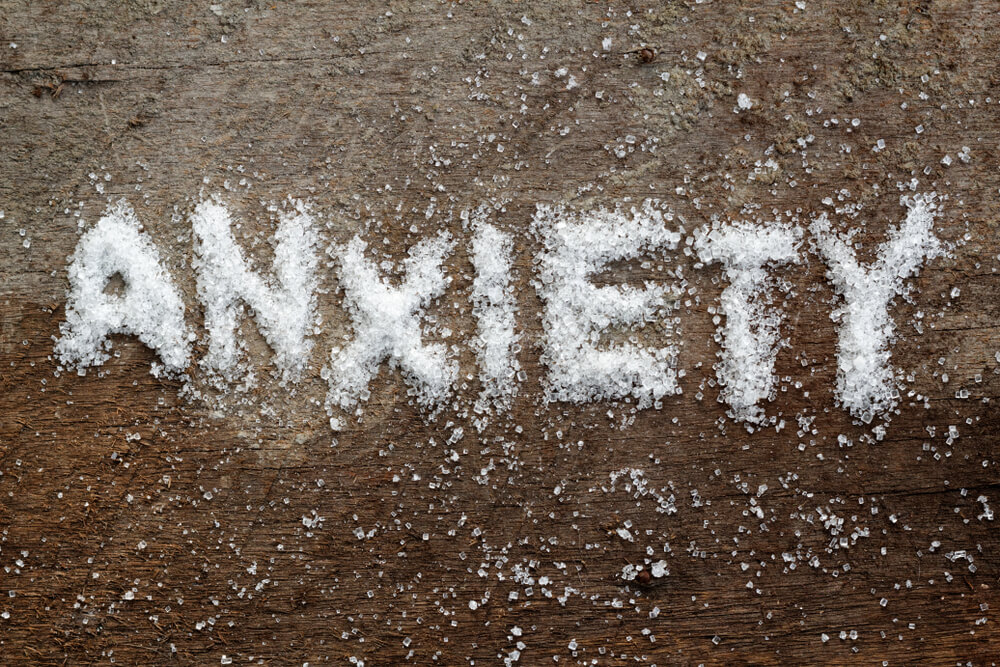Are you aware of the connection that exists between sugar and anxiety? Learn how this factor could play a role on your mental health.
The majority of us are guilty of having a sweet tooth. In fact, we may actually turn to reach for something sweet whenever we need a little pick-me-up or want to improve our mood. But, did you know that there is a link between sugar and anxiety issues?
Even though the research is fairly new, sugar and depression have been linked as factors that have a close interaction with each other. These medical findings do not explain that sugar causes anxiety or depression, but it has shown how it affects the symptoms of these ailments.
We have a natural sense of relating sugar and mood swings as something helpful: for example, we understand that having a piece of dark chocolate as an afternoon treat will release endorphins, therefore will improve our mood.
While this is true, in a sense, it all depends on the quantities we consume. Depression, anxiety, panic attacks, etc. are all diseases that affect our mental health. Excess of sugar or any other enriched ingredient (refined carbs, saturated fats, etc.) affects the way our body responds.
It is in that response that the connection between sugar and anxiety exists. Sugar has absolutely no nutritive value, and that is a fact supported by medical studies.
However, the intake of sugar does cause a neurochemical reaction in our system, that could potentially prolong, and even worsen the feelings of depression, anxiety, panic attacks, sadness, etc.
Sugar and mood swings can be related to each other, as much as any other ingredient on our diet can relate to our mental state. This is because, suffering from any type of mood or mental disorder makes us be hypersensitive to the ways our bodies behave and react.
What we eat plays an important role in how our body acts and this reaction has a significant impact on your mental state.
Whenever we consume anything sweet, especially if the food is high in fructose (added sugar), our bodies suffer a number of stimulation sensations. This is what we commonly refer to as a sugar-rush.
The relation between sugar and depression comes from what we feel, or what happens to our body and mind after the sugar-rush subsides.
In many cases, we may feel lightheaded if the amount of sugar we consumed was excessive, but other symptoms may include feeling nervous, fatigued, have blurry vision, feel a certain uneasiness, palpitation, cold sweats, etc.
Now, imagine these sensations in the mind of someone that suffered from depression, panic attacks or anxiety. With the added reaction coming from a sugar-rush and later a sugar-crash, the symptoms of these mental disorders naturally increase and feel much stronger.
Many would describe the link between sugar and anxiety as a roller coaster of emotions, because that is exactly what a person may feel. Having a momentary high-blood sugar from eating too many sweets, and the crash that follows once the sugar levels go back to normal can make anyone feel unstable.
As a natural biological reaction, whenever we consume sugar our hypothalamic-pituitary-adrenal axis (HPA axis) changes. This part of our body is responsible for releasing the stress hormone cortisol. Changing our sugar levels repeatedly by consuming large amounts of this ingredient keeps our anxiety levels high, thus perpetuating a cycle of mental unsteadiness.
The fastest and healthiest way to address this situation is by following a healthy and balanced diet. What we put in our system has a direct effect on our brains and how these work, so helping it out by reducing those things that can be considered harmful in large quantities is key.
Addressing our mental health with a certified professional is also recommended whenever we experience feelings of depression or anxiety, as these may require a more complex treatment if they persist.
Sources:
https://www.healthline.com/health/depression/sugar-and-depression
https://iquitsugar.com/quitting-sugar-help-anxiety/
http://www.miamiherald.com/news/nation-world/national/article165143117.html
